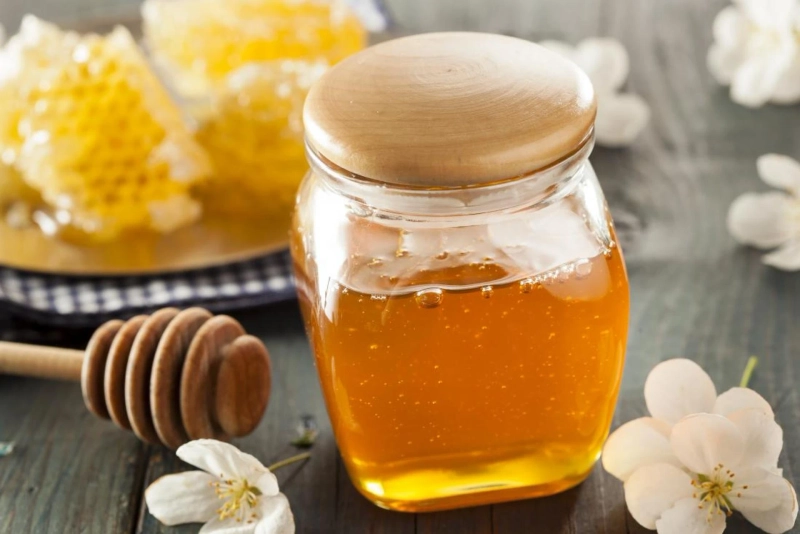Honey: Do bees suffer a lot in the summer? Does high temperature affect honey? The fact of the matter is that high temperatures pose a threat to bees when summer arrives and the sun is shining brightly.
Since bees are also affected by heat, beekeepers take precautions to keep them healthy during hotter months.
When it comes to Kashmir Honey, the high temperatures that can take place in the hive have no effect on the quality of the honey that is produced. In this instance, the summer heat is most harmful to bees.
As a result, it is the responsibility of beekeepers to keep the hives cool by placing them in shaded areas. The hives usually use the tree as a shelter because it is a great resource.
The bees\' hydration is also very important because the bees would not be able to survive in such high temperatures without a supply of water.
Bees and high temperatures in the summer Curiosities of summer bees Bees also struggle to beat the heat. What are they doing? Essentially, the honey bees gather drops of water and take them back to the hive. Along these lines, the water is changed over into a vaporous state and the temperature is brought down.
The brood nests of the hives should be kept at an average temperature of 34o to 38o, and the humidity, which should typically be around 80% inside the hive, should be kept at a temperature that is between 34o and 38o.
Bees are extremely sensitive to temperature: their axons. As a result, when the bees detect an increase in temperature, they move their wings to vent the hive from outside. As a result, the bees can spend the entire night ventilating the hive during extremely hot weather.
The colony\'s survival depends on cooling the hive, and if they don\'t, they risk losing it.
Bees will eventually become extremely stressed and weak in a hive that is exposed to the sun in hot, poorly ventilated areas.
Because of the heat, there isn\'t enough water in the hive. Water is crucial to the bees\' survival, especially in hot weather. It is necessary to survive.
As previously stated, the bees are able to detect an increase in temperature within the hive thanks to their antennae. The bees go outside to collect water drops, which they then deposit inside the hive to lower the temperature in response to this rise.
However, if this is insufficient to reduce the temperature, the bees leave the hive and seek shade under it, thereby reducing the number of people residing inside.
bees in the summer Decrease in the queen bee\'s fertility The ideal temperature for reproduction by the queen bee is between 15°C and 38°C. The drone bees\' spermatozoa are less likely to reproduce at higher temperatures. The drones\' spermatozoa are less likely to reproduce at higher temperatures. Consequently, it appears that climate change may have a significant impact on bee breeding.
Bees are the ones most affected by summer\'s high temperatures, but does honey suffer as well? Does it lose its flavor? What can we do to keep honey from losing its properties and benefits?
Tips for caring for honey in the summer Here are a few things you can do to keep honey fresh and keep it from losing its amazing properties. Store it at the right temperature.
Honey should not be kept in a refrigerator or cooker, nor should it be stored near one, as it may experience temperature fluctuations that compromise its quality. The Tulsi honey should never be left in direct sunlight.
Bees in the summer, taking care of the hive Honey and the bees at home
Honey\'s color, texture, and flavor can all be affected by temperature changes, which can be extremely harmful. If the temperature outside is high, try to keep the honey in an open, shaded area.
Honey needs to be stored properly, so it might be best to store it in a cool part of the house.
Honey shouldn\'t lose its flavor
It is critical that oxygen possibly contacts it when you will utilize it, generally its flavor will lose its intensity.
Honey is a food that is entirely natural and has a lot of health benefits. Its structure, which speaks for itself, is excellent and includes:
Minerals Sodium, Potassium, Magnesium, Calcium, Iron, Manganese, Copper, Phosphorus, Zinc, Selenium, and Vitamins A, C, and B Complex If honey is a part of your diet, you probably already know about many of its properties and how important it is to keep it well, especially at high temperatures.
0
0
0


